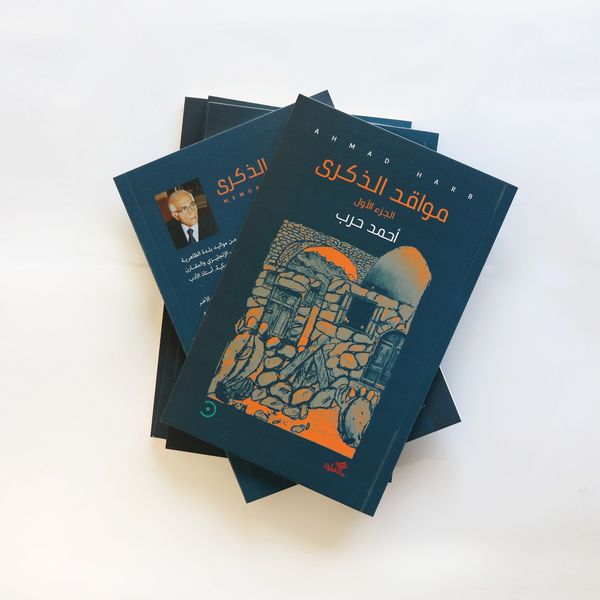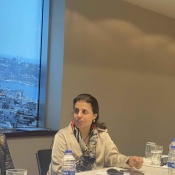“Memory Hearths"... An autobiography by Dr. Ahmad Harb
Dr. Ahmad Harb, faculty member at the Department of English Language and Literature, has published the first volume of his autobiography under the title “Memory Hearths.”
Published by the Al-Dar Al-Ahlia Bookstore in Amman, Jordan, the biography is abundant with the momentum of the daily life that the author experienced and witnessed. It explores the intersection of the political and the personal, which leaves a profound impact on the author's life and the lives of his family members, who witness the Al-Nakbeh, the Six-Day War and other significant political events.

Dr. Harb maintained, “I did not want to call it a biography or a novel, nor did I want to classify it under a specific literary genre. This comes from a conscious understanding of what I write. Because of this, under the title of the book, it says, "call it whatever you like: a biography, a novel, or a clenched fist of lost time.” In my estimation, there is a misunderstanding and generalization of concepts in both the biography and the novel.”
“If you look for the meaning of each event in this story in isolation, you will not find it at the heart of the event itself, but rather outside of it, like glow emerging from a niche, leaving a captivating ambiguity in the convolutions of consciousness. The timeline of this story is the same as my mother’s swing. She ties its ropes to the top of the Hamata tree, leaving it to dangle without touching the ground. We plant our feet on the ground to increase the upward momentum, so we fly in the air until we are about to touch the top of the tree, then we swing back to touch the top of the tree from the other side. Slowly, the ropes oscillate until the swing regains its balance, ready for another thrust. My mother leaves us playing and returns to her spindle with her sister-in-law, Umm Hassan.”
Memory Hearths
In a book review of "Memory Hearths," Mahmoud Shqair, Palestinian writer and novelist, asserts, "What distinguishes this first volume of the autobiography is the author’s reliance on narration, which makes this biography akin to a novel. This is evident in the captivating flow of narration and the detailed portrayal of characters, their attitudes, emotions and approach to life. This applies equally to the men and women of the biography, who are essentially the writer's family: His mother, father, grandfather, uncles, cousins and some of those close to the family by kinship or lineage, or simply because they are from the same village or city. Here, I am refering to the character of the fool, a native of the village, and the personality of the salesman from Herbron, who, with time, becomes the owner of a building in Ramallah that yields substantial income.”
About the Author

Dr. Harb was born in Al-Thahiriyyah, near Hebron, in 1951. He received his bachelor’s degree in English language and literature from the University of Jordan, Amman, in 1974. Subsequently, he obtained his master’s from Roosevelt University, USA, in 1979 and his PhD in Comparative and English Literature from the University of Iowa, USA, in 1986. He worked as an associate professor at the Department of English Language and Literature at Birzeit University until his recent retirement. Currently, he works as a part time professor at the same department.
He has published several novels, including his trilogy: “Ismael”, “The Other Side of the Promised Land” and “Remains”, in addition to his other novel “Ascending to the Minaret”. Dr. Harb has also published many academic papers in literature and criticism.







